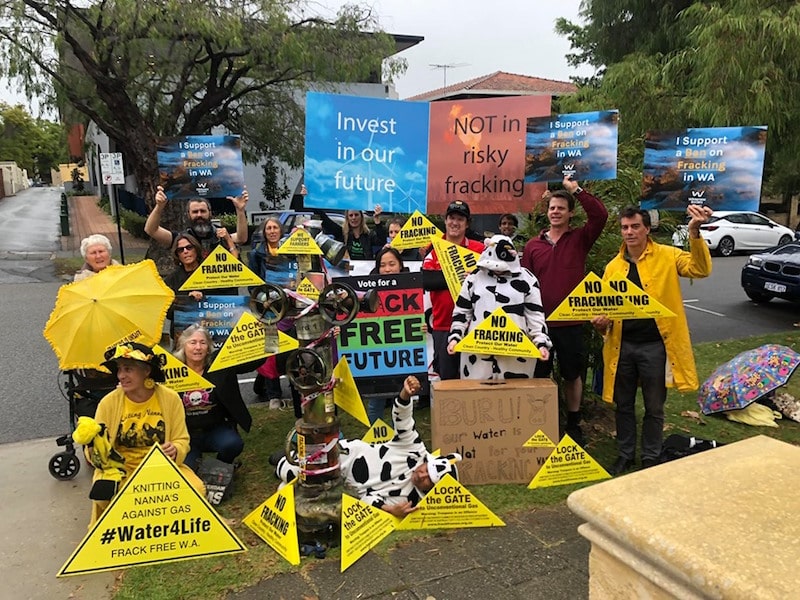
Buru Energy, a West Australian-based exploration and production company, is planning to re-inject wastewater from fracking wells into the earth said chairman Eric Streitberg at today’s annual general meeting (AGM) in Perth.
According to the Buru Energy WA fracking inquiry, the company has admitted that testing of flowback fluids from its 2015 fracking operations in the Kimberley showed elevated levels of the chemical contaminants boron and barium and the radionuclide radium-228.
As part of another inquiry, Buru Energy outlined its plans to dispose of part of its fracking flowback fluid into the drinking water of Kimberley cattle. When shareholders asked about this at the AGM on the 16 May in Perth, it was denied by Eric Streitberg.
Chris Wattington, Buru’s operations officer, explained their flowback water was safe to drink…two-thirds of the time. Essentially meaning it was highly contaminated the rest of the time. If reinjected and seeped into the water supply, it could potentially contaminate the water source.
The WA government is completing an inquiry into fracking in the area where Buru is operating. “When those regulations come out, the industry will look at those regulations and decide whether they want to continue to go ahead and do what the millions of wells are doing in the US, or not,” Streitberg said.
According to an article in The Conversation, in Oklahoma, US officials have reduced fracking operations after injection of wastewater underground caused several earthquakes above magnitude five on the Richter scale – one nearly 180,000 times stronger than the 2.3 magnitude earthquake that prompted a seven-year pause on fracking in the UK in 2011.
“It’s counterproductive to have a conversation about something that may not happen or will be in a completely different regulatory environment. It is not advancing the cause of the industry or the government,” countered Streitberg.
However, given that countries around the world have seen a rise in earthquakes resulting from waste water being re-injected, and the risk to people if water gets contaminated, and with only a handful of wells being developed (and 80 in the pipeline if Buru ramps up production) it’s really important that communities are fully aware of the risks involved and understand what Buru plan to do with the waste products from fracking.
It’s in Buru’s interest to keep people in the dark, due to the strong opposition to contaminated water and risk of increased earthquakes. Streitberg seemed to sum up the reluctance of these important conversations today “frankly we don’t want the fracking regulations to vote the government out to then vote in someone that is going to change it [fracking regulations].”
